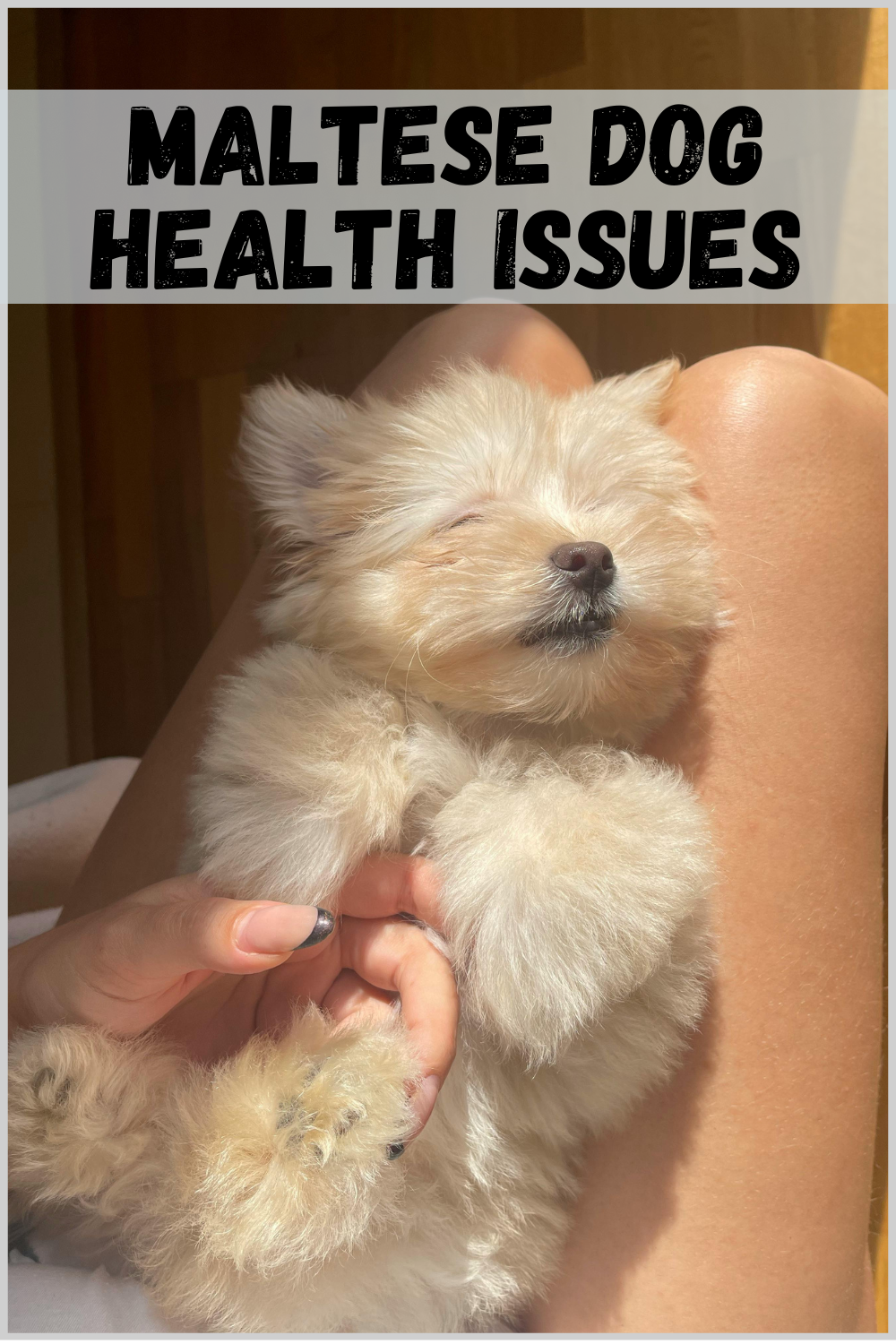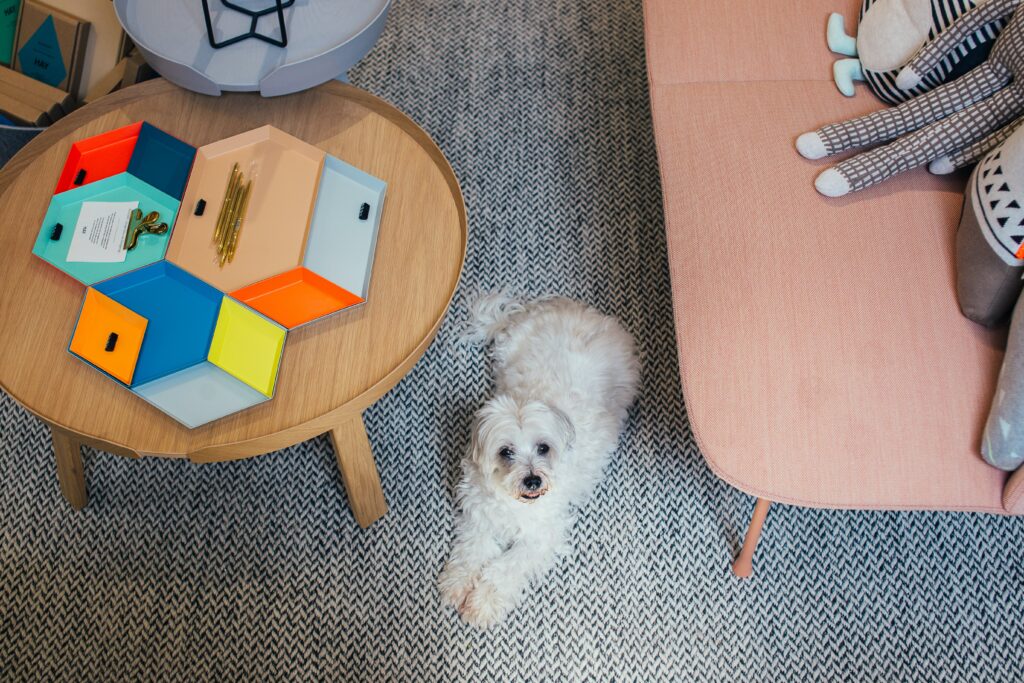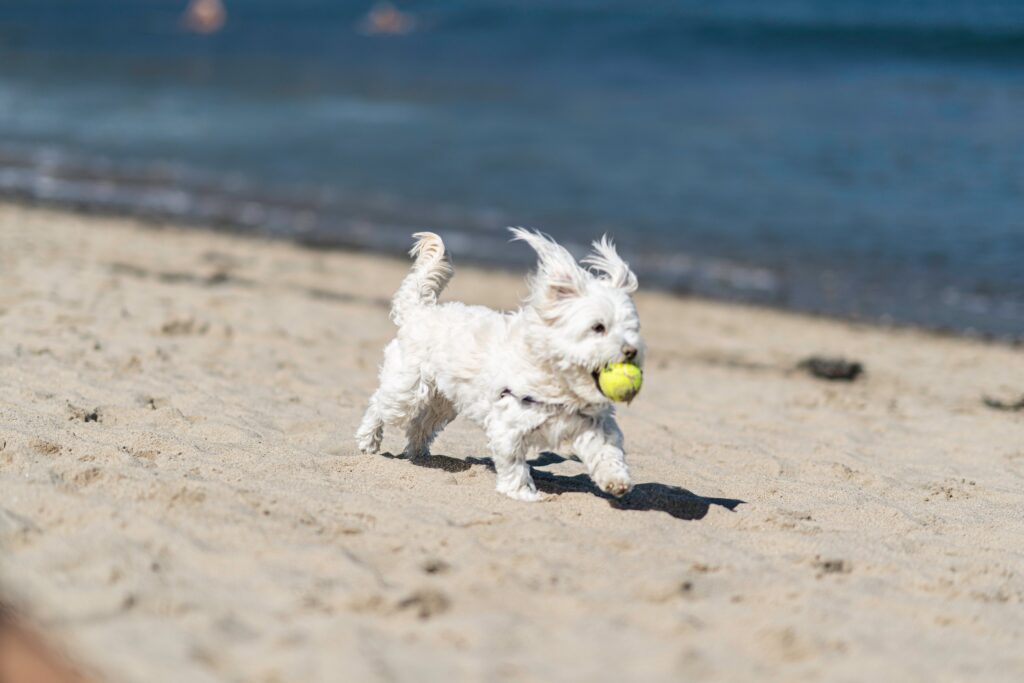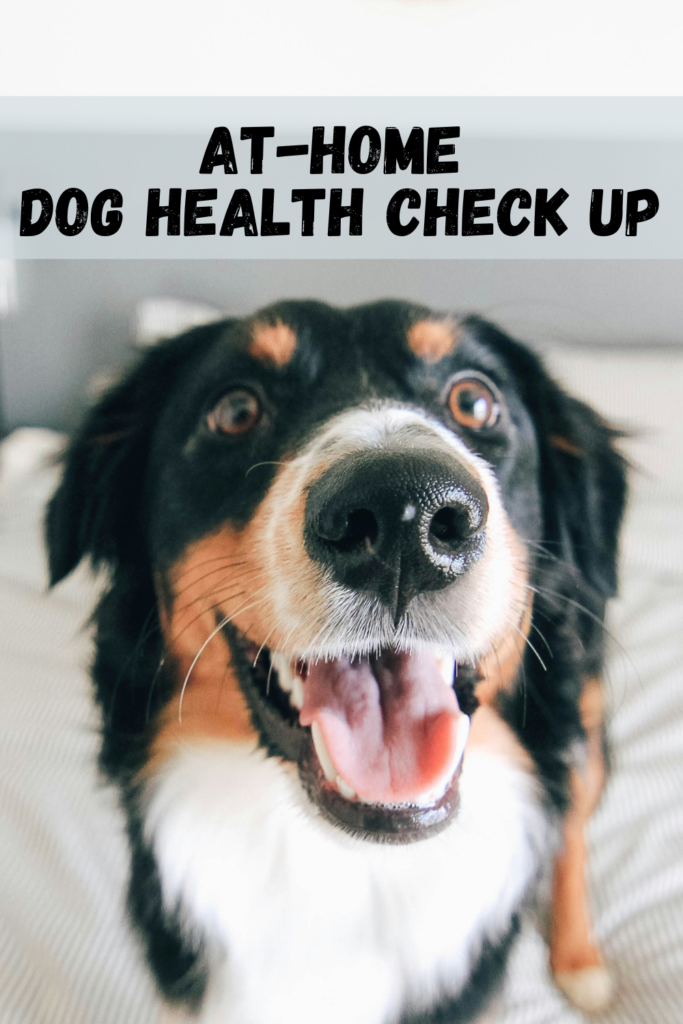
9 Common Maltese Dog Health Issues To Look Out For!
Do you have a beloved, esteemed Maltese furry friend? If so, it’s important you know the common Maltese dog health issues, as well as some solutions for them! For your pup’s sake, it’s good to be able to notice any unusual signs and act quickly and accordingly with what they need.
The Maltese breed is a purebred species that is loved for many reasons including their hypoallergenic hair, happy personality, and overall loving companionship abilities. They have always been companion dogs, even among royalty for decades.
Though they have many, MANY amazing traits, it does not shield them from having common health problems. There are specific issues more common in toy breeds and the Maltese breed specifically. However, just because they are more prone does not mean your Maltese will necessarily have all of these health issues. Moreover, all dogs can have a multitude of health issues… so not to say the Maltese have more than normal.
This post is all about 9 common Maltese dog health issues, how to prevent them, and how to care for them.

#1: Dental Disease
Dental disease is one of the most common problems in ALL pets, but especially small toy breeds like the Maltese. It’s also one that is easily preventable with some time and effort. Dental disease begins with plaque, tartar, and bacteria build-up that eventually leads to gum disease. Without proper prevention and maintenance, this will progress to loss of teeth and organ damage.
Teeth cleaning and brushing should be a part of your normal daily routine. If you are unable to do it yourself, offer different chew & treat options that remove plaque and tartar build-up, and schedule routine teeth cleanings.
When looking for teeth-cleaning chew options, make sure it is a part of the VOHC-approved list. This organization focuses on making sure products do actually help with cleaning their teeth. This ensures that they really do help to remove plaque and/or tartar build-up. Some common ones are Whimzees Brushzees Dental Dog Treats, Canine Greenies Dental Chews, and WholeHearted Smart Smiles Dental Treats.
#2: Heart Disease
Maltese dogs are prone to heart failure later in life, mostly due to the weakening of their heart valves. Some common symptoms are a persistent cough, increased and shallow breathing, labored breathing, and becoming more tired with tasks they were able to do before.
If you begin to notice signs of heart failure, go to your veterinarian to test for severity and get the right medication to help your furry friend as soon as possible!
Some aspects that affect their chances of getting heart failure involve weight control and dental care. These two, if untreated, can lead to heart disease, so prevention is both important and helpful!
#3: Liver Disease
Maltese dogs are specifically at a higher risk of congenital inherited disorders of the liver, which include both Portosystemic Vascular Anomalies (PSVA) and Microvascular Dysplasia (MVD). Fortunately, most dogs will live asymptomatically, especially with the MVD. However, some symptoms include neurological abnormalities like seizures, lethargy, or increased drinking and urination. If your dog is showing any symptoms, your dog should get tested for proper liver function, and take medication and treatment as recommended.
With the right medication, diet, and exercise, the prognosis for liver disease looks good!

#4: Knee Problems
Due to their small size, Maltese dogs are very prone to knee problems, especially luxating patella (LP). This is a condition where the kneecap slips out and becomes dislocated. It can occur with overuse, trauma, or injury, or even as an underlying genetically inherited health issue.
If you notice your pup walking with one leg up and kicking their leg outward, this might be them trying to get their kneecap in place. When this happens on a rare occasion, you do not need any medical intervention. If the problem persists or increases in occurrence, you might have a more severe case. In this case, surgical intervention may be necessary.
Some ways to prevent this are with weight management, avoiding any slippery surfaces or surfaces where they could fall, and reducing strenuous activity on their joints, like jumping and running.
#5: Eye Problems
There are a few common medical health issues that can arise in your Maltese, associated with vision. First is distichiasis, which is an inherited issue, where hair grows inside of the eyelid and scratches the surface of the eye. This can be fixed by removing the hairs permanently before it creates further pain and issues within the eye. You must work with your veterinarian to get this resolved.
Another one is glaucoma, which is due to continuous increased pressure in the eye, due to fluid build-up. Some common symptoms are redness in the whites of the eyes, eye pain, watery discharge, increased lethargy, or loss of appetite. If you notice any of these signs, take your pup to the vet to get the right medical treatment.
The last one, that comes more with age, is cataracts. Their eyes will become more cloudy, versus clear. This is very commonly associated with vision loss, and surgery is required to remove the cataracts and depending on the severity, restore sight.
#6: Asthma
Asthma, which is more common among middle-aged to older dogs and among smaller dogs, is another common health issue affecting the Maltese breed. Common symptoms are coughing, wheezing, and any signs of trouble with breathing.
Asthma can be triggered by multiple things like pollen, mold, cleaning products, and a multitude of airborne particles. Always be on the lookout for common triggers, and always try to use products that are dog-safe around your household. In severe cases, prescribed medication might be beneficial for your dog’s sake.

#7: Collapsed Trachea
Collapsed tracheas are common and can often be quite dangerous. They might have a collapsed trachea at all times or occur with excitement or exercise. If you notice any coughing, associated with a honking noise, or wheezing, go see your veterinarian. They can help to determine the severity and if surgery is needed. In mild cases, avoiding triggers and eliminating collars can help to keep the airway open.
#8: Skin Infections
The Maltese breed is prone to getting skin infections because they do not have a double coat like some of the other dog breeds that helps to shield against harmful agents. Some symptoms include itchy skin, crusty scales, visible redness and changes to the skin, and hair loss.
There are many types of skin infections due to bacteria, or even allergies. It is important to determine the cause early on, to ensure your dog gets the right treatment. There are tons of treatments your veterinarian can prescribe based on the severity and specific case. Sometimes a medicated spray or cream can work, other times, you might need something like a medicated shampoo.
#9: Ear Infections
Since the Maltese breed has ears that droop, they are a lot more prone to ear infections. Moisture remains in the ear and creates an optimal environment for bacteria growth.
If you notice your dog shaking their head more often, it could be due to an ear infection. Start to add normal ear cleanings into your daily routine (only with an ear cleaning solution + cotton swabs, not water!). If the symptoms do not go away within 48 hours, you will need to go see your vet for prescription antibiotics. If left untreated, it can lead to ear obstructions and even hearing loss.
Preventative care in this case is crucial. Routine ear cleanings are important and helpful in reducing ear infections.

Conclusion
Though these issues may sound a little stressful, every dog owner and dog breed has their specific health issues and concerns. Due to the size and history of the Maltese, these 9 health issues seem to be the most common.
Maltese dogs are affectionate, loving, gentle, playful, and highly intelligent. They are hypoallergenic and usually great around other people and pets. Don’t let these health issues deter you from getting a Maltese, as ANY dog will be prone to certain issues. Now, enjoy some time with your Maltese as an informed pet owner. <3



